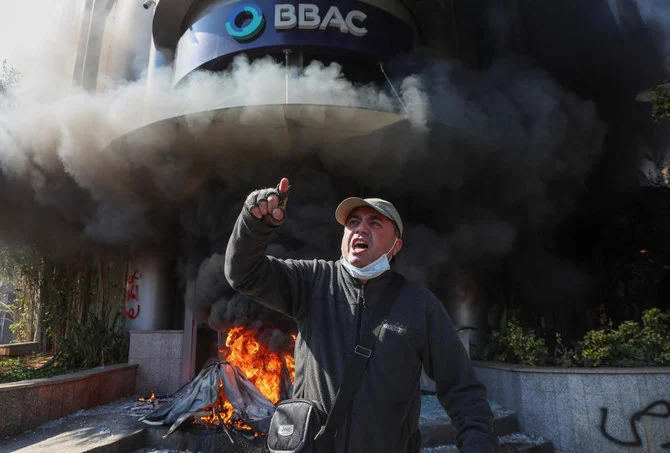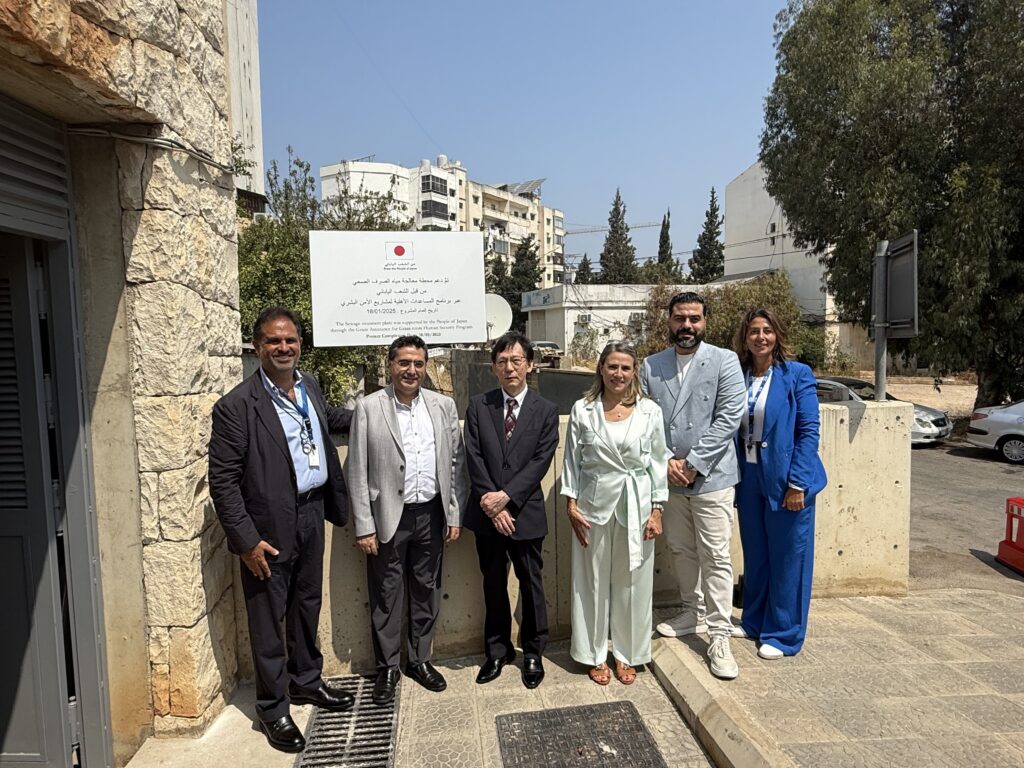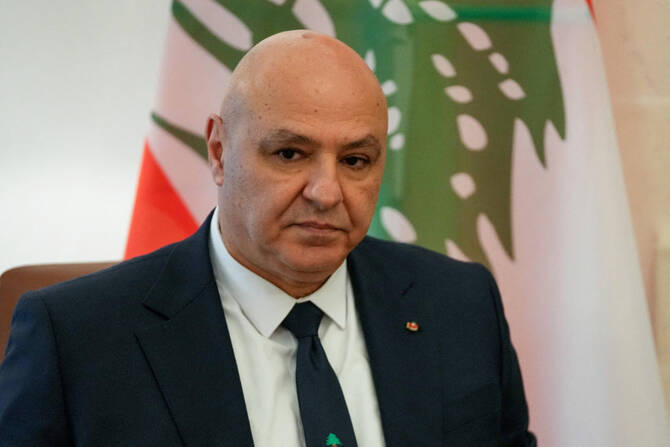A decision by the Association of Banks in Lebanon to close all branches further angered citizens and depositors already facing restrictions on withdrawals. The move came as the Lebanese pound fell to a record low of 80,000 to the dollar.
Depositors and protesters targeted five banks in the Badaro neighborhood of Beirut — Bank Audi, Fransabank, Credit Bank, Byblos Bank, Bank of Beirut, and BBAC.
They then attempted to storm the house of the head of the Association of Banks, Salim Sfeir, after staging a sit-in in front of the building in Sin El Fil in the eastern suburbs of Beirut.
Protesters smashed the glass facades of banks and set car tires alight outside the armored doors that most premises had installed following the October, 2019 protests.
Banks earlier had told most employees to stay home, and said clients were not allowed to enter any branch.
Firefighters quickly put out the fires, while riot police took up positions outside some of the banks and the Lebanese army reopened nearby roads.
Protesters also blocked the Rafic Hariri International Airport Road in Beirut and the coastal highway leading to the Iqlim Al-Kharoub area.
Tires were also set ablaze on major roads in Sidon, Marjayoun and Tyre, which are affiliated with Hezbollah and the Amal movement.
Protests were also staged in the Badnayel-Qasrnaba area in the Bekaa Valley, loyal to Hezbollah and the Amal movement, and on the Tripoli-Beddawi highway in northern Lebanon.
Economist Violette Balaa described the protests as a “fabricated disturbance and the result of the political dispute.”
She added: “Those who burned the banks today are not all depositors. Depositors do not know how to burn tires or where to go. It is an attack on the Lebanese economy and confidence in it.
“What is happening has political objectives. Some people are benefiting from what is happening, particularly dollar speculators, although the state has arrested 40 illegal money changers.”
However, the Mutahidoun (United) Alliance said that “depositors are outraged and are insisting on recovering their deposits while rejecting any further delays.”
It added: “This move aims to send a final and decisive warning: It is necessary to stop the arbitrariness and intransigence of the bank owners and their association, which was charged with obstruction of justice the day before yesterday and labeled as ‘the association of villains.’ It is also important to implement the judicial verdicts given in favor of the depositors against the banks so they can recover their deposits.”
Amin Salam, caretaker economy minister, told a press conference on Thursday that a decision had been taken to “allow the pricing of goods in supermarkets in dollars while adopting the black market exchange rate because it is not possible to rely on the exchange rate of a certain platform.”
Meanwhile, army chief Gen. Joseph Aoun said that “without the army’s determination, our nation would have been in a much more difficult situation due to the successive events and crises. The army will remain the guarantor of Lebanon’s security.”
The Lebanese army said that three soldiers had been killed in armed clashes with wanted drug dealers during a raid in the town of Hor Taala in the Bekaa Valley.
Army command said that three wanted individuals were also killed when army units and an intelligence patrol forced their way into a property.






















